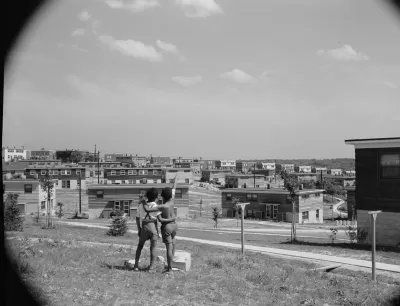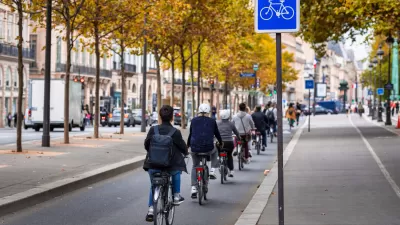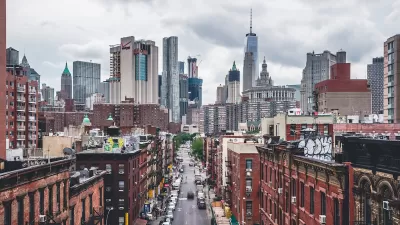Change doesn’t happen accidentally. Who are the people shaping cities and communities through the Covid-19 pandemic and beyond?

The world has changed in a lot of ways since Planetizen last surveyed readers to create a list of Most Influential Urbanists in 2017, and so has urbanism. The Covid-19 pandemic highlighted existing problems faced by cities and communities, created new ones, and brought to light structural inequities and vulnerabilities we previously ignored.
Now more than ever, planning and its associated fields can play a crucial role in building healthier, more resilient, more equitable, and more sustainable cities. From public health advocates to housing reform activists, safe streets champions, and disability rights advocates, people from a wide range of communities and professional fields are challenging the status quo and demanding solutions to urban problems that create more equitable outcomes for all residents.
In 2017, we called on readers to nominate people from a broad range of disciplines as well as ethnicities and genders, but we recognize the list wasn’t sufficiently diverse. This time around, we want to further amplify the work and influence of communities of color, women, and the LGBTQI+ community in shaping cities and making them more inclusive, accessible, and safe and highlight the efforts of leaders and organizations that have catalyzed changes at every level of government. We hope our list can reflect the changing demographics of the planning field as well as the growing recognition that the built environment and public policy have significant, and often unequal, impacts on people and communities.
To submit your nominations, please send an email to [email protected] with the subject line “Influential Urbanists.” Please share this call widely with the communities you are part of. Also feel free to join the discussion with @planetizen and by using the #topurbanist hashtag on Twitter. We'll release the official results of the “Most Influential Urbanists” poll, and let the voting commence, during the last week of May.

Planetizen Federal Action Tracker
A weekly monitor of how Trump’s orders and actions are impacting planners and planning in America.

San Francisco's School District Spent $105M To Build Affordable Housing for Teachers — And That's Just the Beginning
SFUSD joins a growing list of school districts using their land holdings to address housing affordability challenges faced by their own employees.

The Tiny, Adorable $7,000 Car Turning Japan Onto EVs
The single seat Mibot charges from a regular plug as quickly as an iPad, and is about half the price of an average EV.

Seattle's Plan for Adopting Driverless Cars
Equity, safety, accessibility and affordability are front of mind as the city prepares for robotaxis and other autonomous vehicles.

As Trump Phases Out FEMA, Is It Time to Flee the Floodplains?
With less federal funding available for disaster relief efforts, the need to relocate at-risk communities is more urgent than ever.

With Protected Lanes, 460% More People Commute by Bike
For those needing more ammo, more data proving what we already knew is here.
Urban Design for Planners 1: Software Tools
This six-course series explores essential urban design concepts using open source software and equips planners with the tools they need to participate fully in the urban design process.
Planning for Universal Design
Learn the tools for implementing Universal Design in planning regulations.
Smith Gee Studio
City of Charlotte
City of Camden Redevelopment Agency
City of Astoria
Transportation Research & Education Center (TREC) at Portland State University
US High Speed Rail Association
City of Camden Redevelopment Agency
Municipality of Princeton (NJ)





























